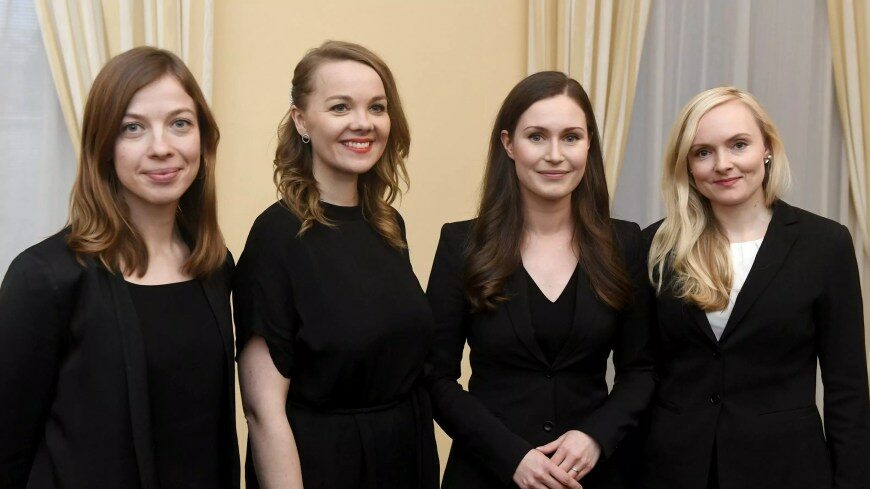 Photo Source: Council on Foreign Relations
Photo Source: Council on Foreign Relations
Disclaimer: This blog post solely reflects the opinion of the authors and should not be taken to represent the general views of IPPR’s management team or those of fellow authors.
Ann Oakley wrote in her 1972 book Sex, Gender and Society that “since the seventeenth century and the growth of industrialization, basic issues to do with the role of women have never been solved”. This is certainly the case in politics where gender prejudice remains a large problem in electoral democracies. Despite recent advances, such as the formation of an all- female coalition government in Finland, women remain at a disadvantage (Noack, 2019). There are several institutional changes that can be made that would decrease gender prejudice in
politics. The most effective institutional response to gender prejudice in politics is the adoption of parliamentary democracy.
Presidential systems are inherently biased against women. To demonstrate this one only needs to compare the past leadership of the United States and United Kingdom. The US and UK are two comparable countries with similar economics, societies, and cultures. The UK has had two female prime ministers; Margaret Thatcher and Theresa May, while the US has never had a female president. The first female presidential candidate to have a serious chance at winning the presidency, Hillary Clinton, lost to an opponent who ran an explicitly sexist campaign against her. This gender imbalance between two of the world’s oldest democracies is due to a number of factors inherent in presidential democracies.
Presidential elections are explicitly about which individual person you want in charge. Parliamentary elections lessen the attention on individual leaders and instead focus more on which party you want to be in government. Choosing a person means qualities of strength and leadership are prioritized over policy positions. By forcing voters into a dichotomy between different individual leaders it biases them against choosing a female leader. More people will view the man as a stronger leader than the female candidate. This can be the case even if the female candidate is more qualified and prepared. In the 2016 US presidential election Trump was able to win despite facing a vastly more qualified opponent. Trump’s masculinity allowed him to be seen as a decisive leader despite never having served in government or the military.
In order to succeed in presidential elections women need to adopt masculine traits such as likeability, leadership, and strength. A prominent example of a female politician being forced to embody masculine traits was the presidential campaign of Marine Le Pen. The leader of the populist, right-wing National Front (FN) party in France, Le Pen adopted masculine traits to succeed. Dorit Geva writes that by adopting “the masculine sign of captain, she could battle to defend the nation (the radical-right trope), with militaristic repertoires that signified her distinction from elites and her anti technocratic leadership style (the populist trope)” (Geva, 2018, p. 17). Women need to adopt these traits to be elected, but when they do adopt them people tend to react negatively (Harris, 2019). A woman that tries to exude leadership or strength will come across to most people as bossy or shrill (Harris, 2019).
By prioritizing skills like competence, parliamentary systems benefit women. Although MPs are not guaranteed to judge candidates purely on intelligence or competence, they are more likely to do so given that they have worked with the candidates. No one would dispute that, on average, men and women are equally intelligent and competent. The Harvard Business Review found that, on average, women are seen as more competent than men (Zenger and Folkman, 2019). Therefor if leaders were chosen based purely on competence, we should expect a 50-50 split, or even one where women are slightly preferred. The reason we don’t see this split is because other factors are considered. In presidential democracies these factors include likeability, leadership, and strength. Parliamentary democracies on the other hand allow for women to succeed based on natural talent, not their ability to emulate masculine traits.
Combatting gender prejudice is an extremely important issue. Not only is achieving more gender equity in politics the right thing to do it also has several positive knock-on effects. It is more likely that women would prioritize diplomacy over military conflict (Harris, 2019). There are numerous possible institutional responses to this problem. However, none are as simple or effective as adopting a parliamentary system of government. In addition to being less effective in reducing gender prejudice in politics, a parliamentary system has the added detriment of “lower government spending and lower redistribution” (Rogers, p. 157). This is something that overwhelmingly benefits women, adding another reason to why parliamentary systems are better for women (Stewart, 2017).
By John Morgan
BSc Politics and International Relations
References
Benstead, L. Jamal, A. Lust, E. Is It Gender, Religiosity or Both? A Role Congruity Theory of Candidate Electability in Transitional Tunisia. American Political Science Association [online]. 2015; Volume 13, Issue 1: 74-94. [Accessed 17 December 2019]. Available from: https://www.cambridge.org/core/journals/perspectives-on-politics/article/is-it-gender-religiosity- or-both-a-role-congruity-theory-of-candidate-electability-in-transitional- tunisia/1F12CFF48F86B267CDE496D48A9A6957
Beaman, L., Chattopadhyay, R., Duflo, E., Pande, R., & Topalova, P. Powerful Women: Does Exposure Reduce Bias? Quarterly Journal of Economics [online]. 2009; Volume 124, Issue 4. [Accessed 17 December 2019] Available from:http://web.b.ebscohost.com.libproxy.ucl.ac.uk/ehost/detail/detail?vid=0&sid=458243ef-1a61- 4ad9-9157- 3eb30bfc8d5b%40sessionmgr103&bdata=JkF1dGhUeXBlPWlwLHNoaWImc2l0ZT1laG9zdC1 saXZlJnNjb3BlPXNpdGU%3d#AN=45306082&db=bth
Campbell, A. 2019. John McDonnell: Labour should have a female leader if Jeremy Corbyn loses next election. GQ. 11 October.
Harris, A. 2019. Gender in Politics. Lecture notes. Identity Politics: Prejudice, Inclusion, and Equal Rights POLS0058. University College London. 12 November.
Noack, R. 2019. Change in Finland: A government led by five women and the world’s youngest prime minister. The Washington Post. 9 December.
Oakley, A. (1972). Sex, Gender and Society. Abingdon: Routledge
Reynold, K. 2016. Trump vs Clinton is a chance to think more clearly about gender and leadership. The Conversation. 5 November.
Rogers, M. (2015). The Politics of Place and the Limits of Redistribution. Abingdon: Routledge
Stewart, H. 2017. Women bearing 86% of austerity burden, Commons figures reveal: Labour urges Conservatives to look at disproportionate impact of tax and spending policies on women. The Guardian. 9 March.
Zenger, J. Folkman, J. 2019. Research: Women Score Higher Than Men in Most Leadership Skills. Harvard Business Review. 25 June.






